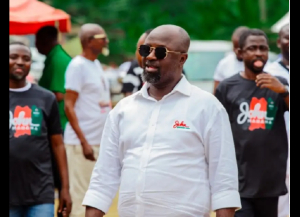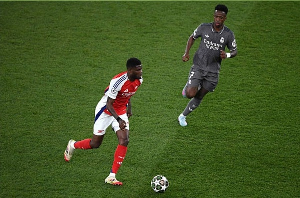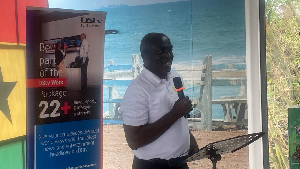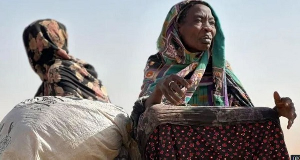In a recent dialogue with the Ghanaian artist Danny Lampo, the spotlight turned to the persistent efforts to carve a musical landscape dominated by homegrown talent. Despite earnest aspirations for a future where Ghanaian songs reign supreme, challenges have posed hurdles to the successful realization of this agenda.
Lampo, an artist deeply invested in the growth and recognition of Ghanaian music, voiced his concerns regarding the apparent absence of robust measures to ensure the widespread acceptance of local tunes. Central to his discourse is a poignant question: what fate befalls Ghanaian music on the international stage, and how does this initiative impact artists who ardently support the cause? Lampo urges a thoughtful consideration of proactive steps to safeguard the interests of musicians who contribute to the 100% Ghanaian music movement.
The primary challenge under scrutiny is the struggle to secure prominence for Ghanaian songs not only within the borders of the nation but also on global platforms. Lampo, a vocal advocate for the cause, raises pertinent questions about the efficacy of the strategies employed by leaders spearheading the movement. He emphasizes the need for a more structured approach that not only encourages local DJs to play Ghanaian music but also ensures fair representation and appreciation on the international stage.
In the course of his discussion, Lampo also addresses concerns about the potential ramifications for artists actively supporting the 100% local music initiative. His emphasis lies on the necessity of protective measures to shield musicians from possible negative consequences. This encompasses considerations for exposure, fair distribution of royalties, and the creation of ample opportunities for Ghanaian artists within the confines of a music scene that unequivocally champions local talent.
As the discourse gains momentum, the focus intensifies on the leaders and influencers at the forefront of championing the cause of promoting Ghanaian music. This article aims to delve into potential solutions, contemplating strategic collaborations, targeted promotional campaigns, and international partnerships as means to amplify the reach of Ghanaian artists beyond national borders.
Danny Lampo's insightful reflections cast a spotlight on the intricate path to achieving a 100% Ghanaian music agenda.
The article encourages a comprehensive examination of the measures in place to support this initiative, ensuring that it not only benefits the industry at large but also safeguards the creative pursuits and livelihoods of the artists who contribute to the vibrant and diverse Ghanaian music scene.
Opinions of Thursday, 21 December 2023
Columnist: Promoter Koolic















